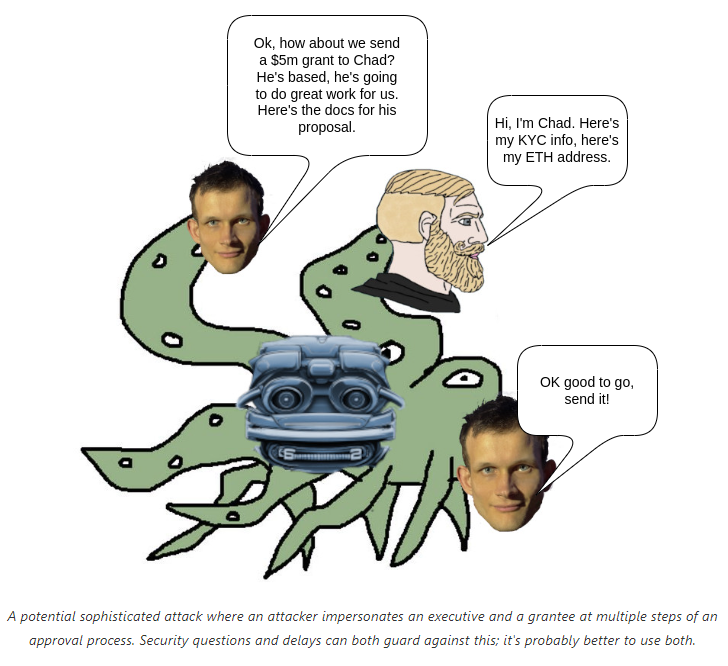As deepfakes, AI-generated simulations of actual folks, grow to be more and more subtle, the flexibility to tell apart reality from fiction on-line turns into ever tougher. This rising risk to on-line safety and belief has prompted Ethereum co-founder, Vitalik Buterin, to suggest a novel defense mechanism: personalised safety questions.
Explaining the vulnerability of conventional safety measures like passwords and generic safety inquiries to evolving deepfakes, Buterin highlights that his proposal depends on one thing synthetic intelligence hasn’t totally mastered but—the richness of human connection.
Ethereum Co-Founder’s Genius Hack To Outsmart Deepfakes
As an alternative of counting on simply guessable info like a pet’s identify or mom’s maiden identify, Buterin’s system would make the most of questions primarily based on shared experiences and distinctive particulars particular to the people interacting. Think about recalling that inside joke from faculty or that obscure nickname your grandma gave you as a toddler – these personalised particulars would type a sort of reminiscence maze, difficult imposters trying to imitate somebody.

Supply: vitalik.eth.limo
Nevertheless, remembering the trivialities of our previous isn’t all the time straightforward. Buterin acknowledges the potential for reminiscence hiccups, however sees them as one other layer of protection. The very act of recalling these obscure particulars provides a complexity that additional deters imposters who wouldn’t have entry to such private info.
Ethereum at the moment buying and selling at $2,508.7 on the every day chart: TradingView.com
Recognizing the necessity for a multi-pronged method, Buterin doesn’t cease at personalised questions. He envisions a layered safety system incorporating components like pre-agreed code phrases, refined duress alerts, and even affirmation delays for vital ethereum transactions. Think about every layer as a barrier, making it exponentially more durable for attackers to realize entry.
Deepfake Risk Spurs Pressing Options Inquiry
This proposal arrives at a vital time. A latest report uncovered yet one more deepfake attempt concentrating on Buterin, highlighting the pressing want for efficient options. Whereas specialists applaud the originality and potential of his method, questions stay.
Now we have seen deepfake of @VitalikButerin used to advertise a pockets drainer
The rip-off website is strnetclaim[.]cc
Nonetheless of the video may be seen under pic.twitter.com/R8AY5CVOea
— CertiK Alert (@CertiKAlert) February 7, 2024
Challenges like securely storing these personalised questions resurface when contemplating their implementation. Can they be encrypted and accessed securely, with out changing into susceptible targets themselves? Scalability additionally raises issues. Whereas efficient inside close-knit teams or people with deep shared experiences, how would this technique perform in broader contexts or on-line interactions with strangers?
Moreover, questions come up about accessibility. Might an over-reliance on reminiscence or particular shared experiences create obstacles for sure demographics or people who won’t possess the identical degree of element? Lastly, with AI consistently evolving, future-proofing turns into essential. Might subtle AI finally study to control or entry these recollections, rendering the questions ineffective?
Solely time will inform if Ethereum boss Buterin’s reminiscence maze can outsmart the deepfakes, however one factor’s for positive: this ingenious proposal has sparked an important dialog about safeguarding our digital selves. In a world the place even actuality itself is underneath assault, leveraging the intricacies of human reminiscence may simply be the following frontier within the battle towards subtle on-line impersonation.
Featured picture from Adobe Inventory, chart from TradingView












